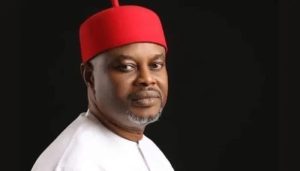Tomorrow, President Bola Ahmed Tinubu will mark a significant milestone by laying the foundation stone for a new national headquarters of the Independent National Electoral Commission (INEC) in Abuja’s Maitama district. Yet, beneath the surface of ceremonial smiles and lofty rhetoric lies a disturbing reality. The very body entrusted with safeguarding Nigeria’s democratic processes is having its principal infrastructure constructed not by its authority, but under the auspices of the Federal Capital Territory Administration (FCTA).
This egregious act undermines INEC’s autonomy and exposes just how deeply compromised the path to the 2027 elections has already become.
No serious democracy places electoral integrity in the hands of an institution that cannot independently construct or manage its headquarters. Yet here we stand, witnessing INEC depend on the FCTA for the construction of its nerve center, funded not through its legitimate channels but by political caprice. Why is it that an “independent” agency cannot oversee a project so central to its mission? The answer is glaring: its independence has been systematically eroded.
Reports indicate that this project will cost billions of naira, yet the precise figures remain shrouded in secrecy. Like many grandiose projects in Abuja, it is cloaked in ambition but reeks of political patronage. Whispers abound that this initiative is designed as a farewell gift for the outgoing INEC chairman, whose tenure ends in December, with accusations that he handpicked the contractor. This project stands not just as a monument to his leadership but as a reward for loyalty and more critically, as a potential training ground for his successor, one expected to perpetuate the same manipulative practices.
As INEC is structurally subdued, other branches of government have long surrendered their autonomy. The legislature, tasked with checking executive power, has devolved into nothing more than a rubber stamp. The National Assembly recently passed INEC’s inflated ₦126 billion budget as against the 2024 allocation of N40 billion without so much as a hint of scrutiny. Oversight has recast from a duty into a mere formality, rendering legislation an act of blind compliance.
The judiciary, often considered the last bastion for the common man, has fallen even further. In a rare moment of honesty, retired Supreme Court Justice Musa Dattijo Muhammad decried how the Chief Justice exercises unchecked power over case assignments and court administration, sidelining colleagues and undermining accountability. His farewell address unveiled a judiciary plagued by corruption and political manipulation, where justice is sold to the highest bidder.
Supporting these grave assertions, investigations by the ICPC revealed that between 2018 and 2020, a staggering ₦9.457 billion changed hands in bribes to court officials and judges. Alarmingly, six female judges reportedly received ₦3.307 billion in illicit payments. Such shocking revelations confirm the widespread fear: the judiciary has ceased to be a neutral arbiter and has become an active participant in the demeaning of democracy.
Now, INEC, the one institution still expected to facilitate credible elections, finds itself enmeshed. With leadership indebted to those it is meant to regulate and increasingly subject to external influences, despair looms over the prospect of genuine electoral integrity.
The groundwork for 2027 is not being laid for a true election, but rather for a coronation. Safeguards have been dismantled, balances skewed, and institutions hollowed out. What lies ahead is not democracy, but a mere ritual masquerading as one.
The hood does not make a monk. Just as a grand edifice will not confer credibility upon INEC, institutions are not defined by their appearance but by the integrity of their actions. And today, that integrity is alarmingly scarce.






